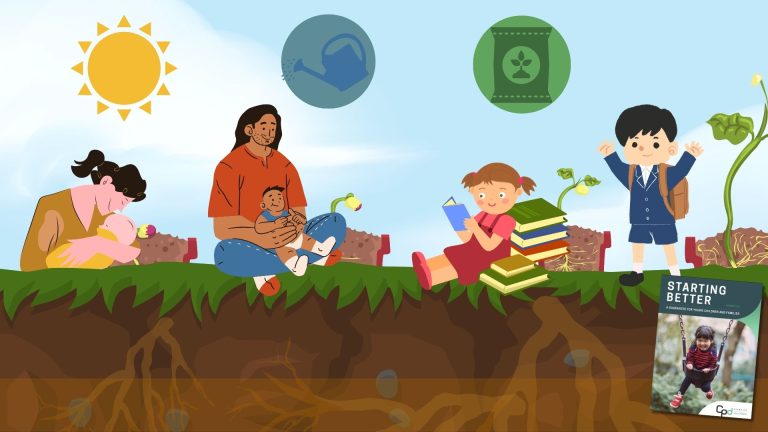Australia has voted and the results are still difficult to interpret. Eva Cox, steps back to take a look at what our options as voters really were and what the take home lessons for our political leaders should be if they want an improved campaign and outcome next time.
Does a tied vote for the major parties show that the voters are evenly divided, or is that most can’t see enough difference between them? The extra votes for independents, Greens and even the Nationals suggest that many voted on the basis of anything but the majors and together with the rise in informal votes suggest confusion, Most undecided voters would not have found it easy to seek out policy options that engaged their interest.
The tied result does not seem to be because Australian voters were happy with the offers of the major parties. 82% thought the ALP did not deserve to be re-elected but neither were more than half prepared to support the Coalition instead. Between a deluge of major party advertising and the very limited coverage by the media, most voters were given little access to minority views.
Real choices were silent
What would have happened if the voters had had easy and professionally devised access to the assessments and scores of advocacy and Lobby groups policy options and omissions done by groups representing the really forgotten voters and issues? Scoresheets such as those produced by Equal Rights Australia, Women’s Electoral Lobby, GetUp!, and The Health Reform Alliance. Most of these rated the Greens policies as being the best for their group interests and for a more socially inclusive, fairer Australia.
The Greens did make considerable gains in their votes and representation but why didn’t they score more? Their lack of capacity to push their views contrasts with the cash resources that were used by both major parties and the various well-heeled major lobby groups such as business organisations.
Most voters limited access to the minor group policies or the recommendations of independent assessors means the results neither reflect a keen duel between two clearly differentiated major policy agendas, nor do they suggest most voters knew that there were alternatives on offer. The serious danger is that voters seeing no possibilities of their interests being met show a level of discontent translated into cynicism and disconnection and are vulnerable to possibilities of more populist appeals to the politically disillusioned.
A supermarket election
What the results do indicate is that electors are not impressed with being treated as consumers buying products,. A few policy initiatives, none of which could seriously grab the public imagination, were designed to buy votes in particular marginal seats. The results were unspectacular equivalents of Woolworth or Coles as the best buys for the next three years. There are costs in underestimating voters and reducing citizenship to customer benefits. A major failure to understand voters has particularly affected ALP policy plotters for some time. They have forgotten that leadership requires some need to inspire the led to have confidence, to see some integrity and create trust.
However post election discussions so far do not suggest that either of the major political parties has any regrets about their limited vision or their negative type of campaign. Who in the Coalition will recognise that abusing the ALP and negative options are causing damage to the political processes? A cynical exploitation of fear tactics is deeply immoral and shows expected disconnects between ethics and politics, something that should sit oddly in a publicly Christian potential PM.
Furthermore who in the ALP is going to apologise to us all for both losing the plot they set up in 2007 and boring us with an almost content free campaign? The boring machine (mainly) men who cannot read the entrails disguised as focus groups, dumped a major policy commitment, then dumped the leader who lost his credibility over this, then presumably hobbled together a new leader with a policies devised by focus groups – a politically mortal sin producing a most boring campaign.
As a long term researcher, I listened to the conversations on air, in buses and amongst friends and contacts and could find no fire but just a sense of pain in the belly, and a lack of interest in all but those supporting the Greens. This particular piece of poor planning and campaign implementation also diminished the odds for a first elected woman PM. The puerile whimperings of the campaigners managed to undermine the potential novelty of having a gender basis for voting ALP. Even if the policies were not great, Gillard, as the first woman in leadership, could have given hope of better things to come. She was drowned in a sea of me-too crap and the many omissions of equity policies I outlined here. So, no one should dare ascribe any losses to failures of feminism, because this is a classic boyzone effort that shows the power of bad macho organisational cultures. However, the stuff up the ALP has ‘master’-minded is truly scary because Karl Bitar and the rest so far have failed to recognise they have done anything wrong! A definitive recipe to repeat their errors.
Choice + leadership = decent outcomes
What if, as I asked above, the voters had known more about the other options? Where they did, they voted solidly for Greens, independents and where not, they often chose nobody. Maybe the tied parliaments will allow the independents to make the system work better. I hope they do because otherwise the basic trust of the system that underpins the democratic process may not survive too many more elections. If voters are treated as venal and self interested, they may become that way and also be vulnerable to extremists who can inspire them into a belief that complex problems can have simple solutions.
So, if what we get is the government we deserve but don’t like, maybe we need to work out what has gone wrong. We need to make sure that there are decent policy options and explore what more can be done to improve the content for next time.


